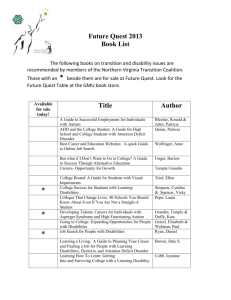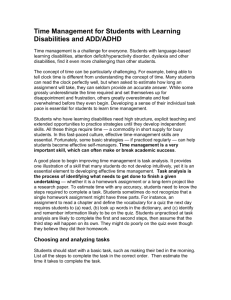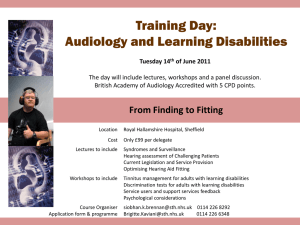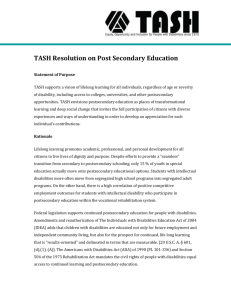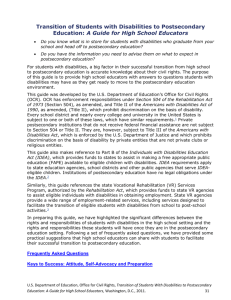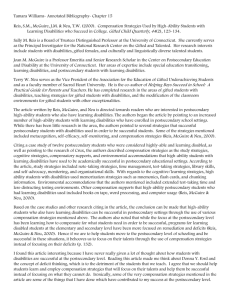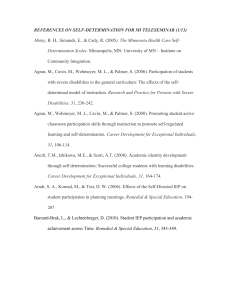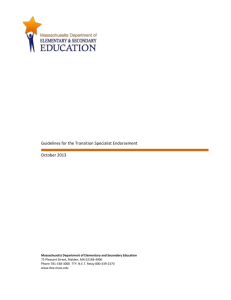College - you can do it!
advertisement
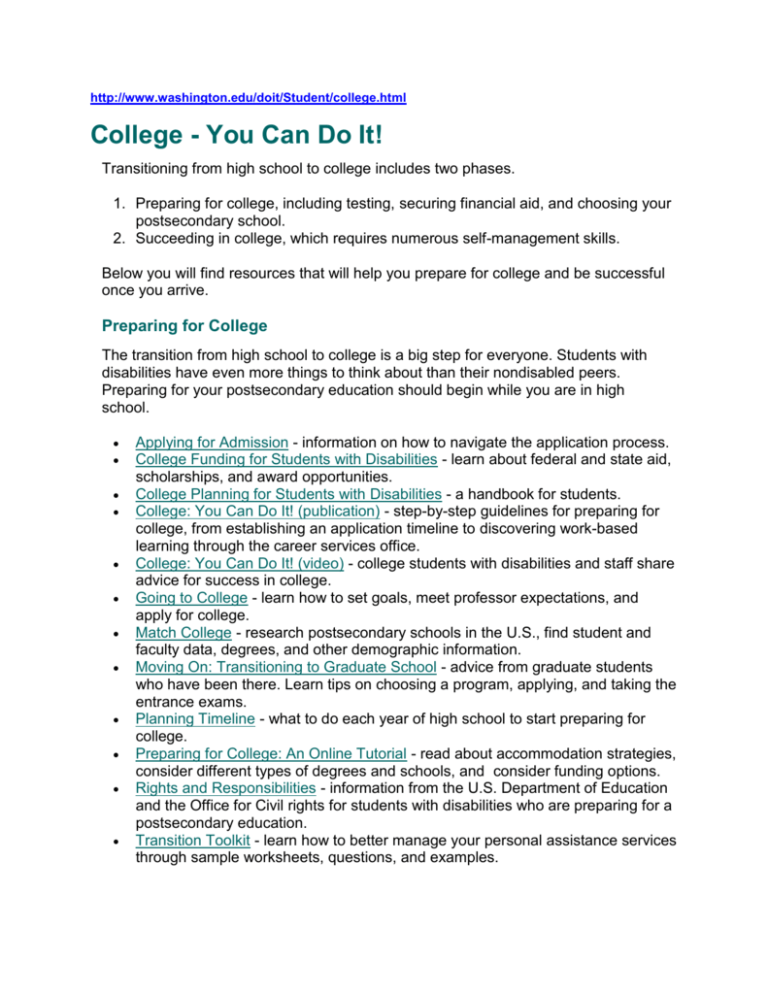
http://www.washington.edu/doit/Student/college.html College - You Can Do It! Transitioning from high school to college includes two phases. 1. Preparing for college, including testing, securing financial aid, and choosing your postsecondary school. 2. Succeeding in college, which requires numerous self-management skills. Below you will find resources that will help you prepare for college and be successful once you arrive. Preparing for College The transition from high school to college is a big step for everyone. Students with disabilities have even more things to think about than their nondisabled peers. Preparing for your postsecondary education should begin while you are in high school. Applying for Admission - information on how to navigate the application process. College Funding for Students with Disabilities - learn about federal and state aid, scholarships, and award opportunities. College Planning for Students with Disabilities - a handbook for students. College: You Can Do It! (publication) - step-by-step guidelines for preparing for college, from establishing an application timeline to discovering work-based learning through the career services office. College: You Can Do It! (video) - college students with disabilities and staff share advice for success in college. Going to College - learn how to set goals, meet professor expectations, and apply for college. Match College - research postsecondary schools in the U.S., find student and faculty data, degrees, and other demographic information. Moving On: Transitioning to Graduate School - advice from graduate students who have been there. Learn tips on choosing a program, applying, and taking the entrance exams. Planning Timeline - what to do each year of high school to start preparing for college. Preparing for College: An Online Tutorial - read about accommodation strategies, consider different types of degrees and schools, and consider funding options. Rights and Responsibilities - information from the U.S. Department of Education and the Office for Civil rights for students with disabilities who are preparing for a postsecondary education. Transition Toolkit - learn how to better manage your personal assistance services through sample worksheets, questions, and examples. Succeeding in College Congratulations! You have decided to go to college—excellent decision. A college education can increase your opportunities for success. However, you will find the college learning environment different from that of high school. College is less structured and will require you to use more self-monitoring skills than you needed in high school. There will be no teachers or parents making decisions for you. Be prepared to face an increased level of academic competition and to have less contact with your professors. You will be the person responsible for your actions, your learning, your successes and your failures as a college student. College Survival Skills - learn tips to increase your success in school. Moving On: The Two-Four Step (publication) - how to make a smooth transition between a two-year and four-year school. Moving On: The Two-Four Step (video) - learn tips for making a successful transition between a two-year and four-year institution. Obtaining Accommodations in Higher Education - tips and resources. Succeeding in Graduate School - real world advice from graduate students who have been there. Learn tips on how to be successful, develop supportive relationships, obtain accommodations, and more. Taking Charge: Stories of Success and Self-Determination (publication) successful strategies used by students with disabilities to overcome obstacles and reach goals. Taking Charge: Stories of Success and Self-Determination (video) - the stories of students with disabilities and how they live self-determined lives. Volume 1 Volume 2 Volume 3 Tips for Academic Success - learn how to plan your time, take tests, understand stress, and study smarter. We Connect Now - a resource for connecting college students with disabilities in access to higher education and employment issues.
